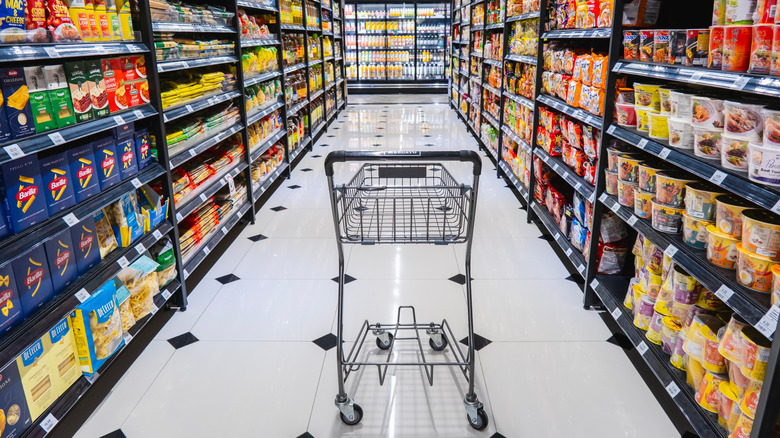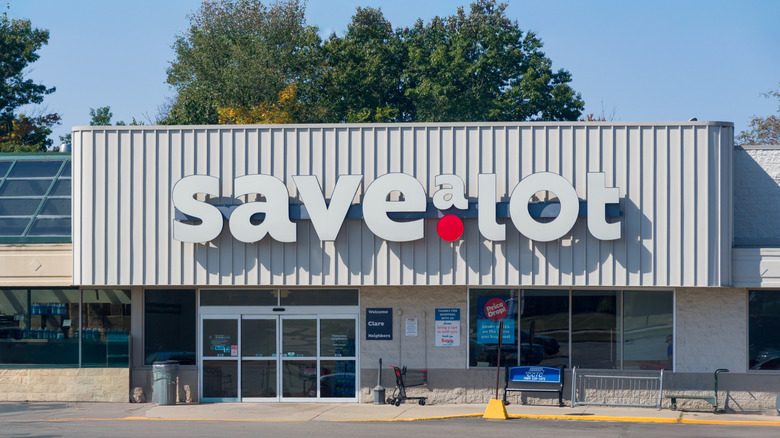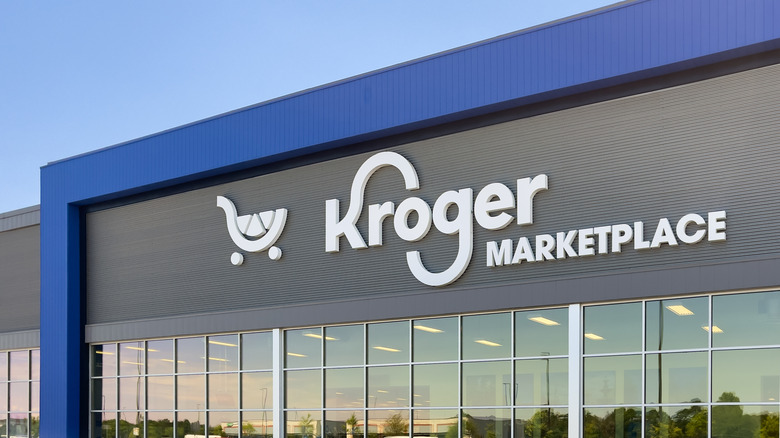Grocery Stores Vs Supermarkets: Is There A Difference?
For as long as I can remember, I've always thought grocery stores and supermarkets were the same (outside of size). It felt like they were so similar you could use them interchangeably. In everyday conversations, most people use "grocery store" and "supermarket" as if they mean the same thing. They're both places where you shop for food, and that's the main aspect, after all. But if we're being specific, there are some distinct differences beyond semantics, including how each type of store impacts your budget.
Grocery stores and supermarkets each have advantages and drawbacks, depending on the needs and preferences of the shopper. Grocery stores (like Trader Joe's or Save A Lot) are indeed smaller, but they're also more focused on convenience. Supermarkets give you a more expansive shopping experience with a wider variety of products and services.
For those of us who aren't trying to spend an arm and a leg, these differences are significant. It's also not uncommon for grocery stores to be family-owned, cultivate local connections, and carry essentials that are in line with community needs. There is a tradeoff, though. They certainly provide convenience and quick access to fresh produce and staples, but the limited space usually means higher prices due to smaller purchasing power.
Supermarkets operate on a larger scale and typically offer lower prices by buying in bulk and providing discounts. This variety can lead to greater savings, especially for shoppers who want to stock up on essentials (Walmart and Costco come to mind). Understanding these distinctions can help shoppers make smarter choices based on convenience and cost-effectiveness.
Grocery stores are small, local, and convenient
Honestly, there's a ton of crossover in the grocery world nowadays, but we're going to stick as close to the book as possible to carve out a delineation between the two. I know people who will swear up and down that Trader Joe's is a high-end specialty supermarket and not a grocery store. But, that's a different argument for a different day.
Like I mentioned, grocery stores are usually smaller and cater to more immediate needs. They're often family-owned or independently run, which creates a more intimate shopping experience. A lot of grocery stores prioritize fresh, local produce and stock essential items like milk, bread, and common household necessities. Since they don't have the large-scale layouts, grocery stores are more convenient for shoppers looking to grab a few quick items. In fact, their smaller size and targeted selection make them a popular choice for busy city dwellers and people living in neighborhoods which don't have easy access to bigger stores.
Piggybacking off that last point, many people in close-knit communities say they love going to the local grocery store because they often get to know the store owners and staff personally. These local stores can become important social hubs in smaller neighborhoods. Despite not offering the same variety or competitive prices as larger chains, grocery stores maintain a loyal customer base by meeting everyday needs and offering products that reflect local preferences. If you value fresh produce, like being a supporter of local businesses, or quick trips without having to wander through big aisles, grocery stores can give you a personalized and efficient option that's hard to beat.
Supermarkets offer variety, scale, and one-stop shopping
Supermarkets are designed for a comprehensive shopping experience where you can get a variety of goods and products. Unlike grocery stores, supermarkets can take up tens of thousands of square feet with multiple aisles dedicated to different food groups, international cuisines, organic foods, and non-food sections like household supplies and pharmacy products. This extensive layout is ideal for shoppers who prefer to complete their weekly grocery trips in one go.
Aside from how big they are, supermarkets also feature services that grocery stores typically do not, including loyalty programs, in-store pharmacies, and different sections for specific dietary preferences like gluten-free or vegan options. The larger scale allows supermarkets to negotiate bulk purchases, which translates to better discounts and savings that it can pass on to consumers.
Many supermarkets also have specialized departments such as bakery (my favorite), meat, and seafood counters, as well as delis and ready-to-eat meals. So, it's really easy for shoppers to find what they need without multiple stops around town. I personally prefer these huge stores because I don't want to go from place to place, but that's just me. For anyone who wants a high level of variety, competitive prices, and added convenience, supermarkets are the go-to option for everything you need in one place.


